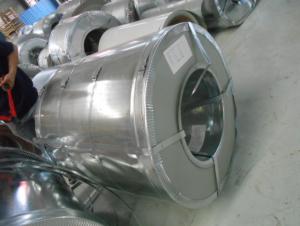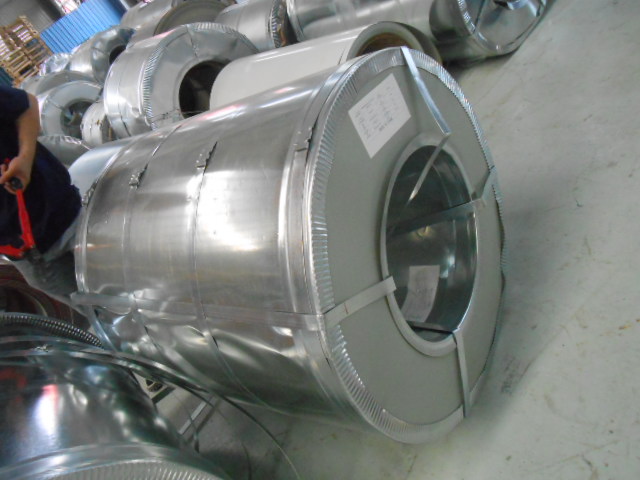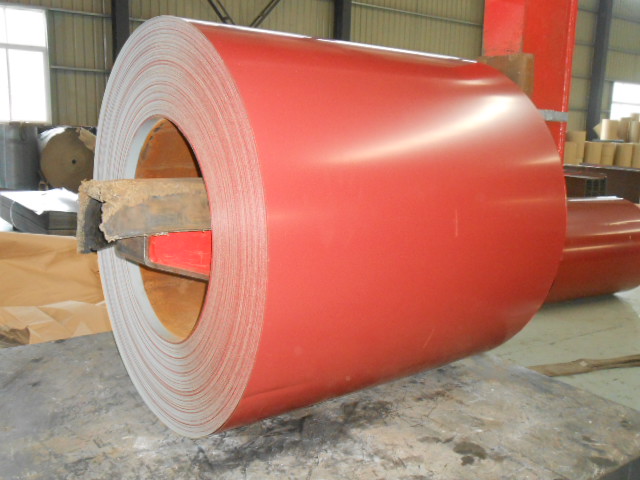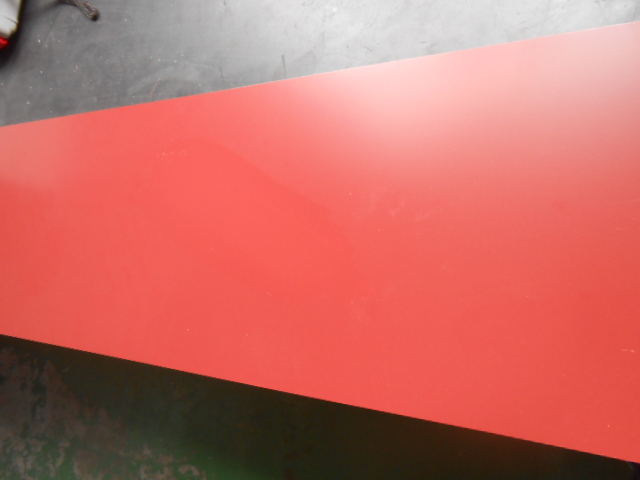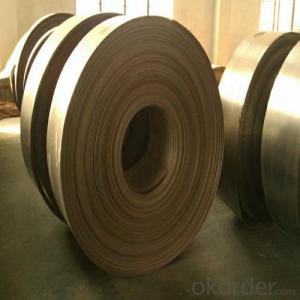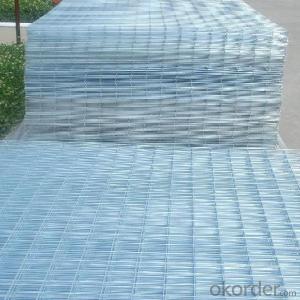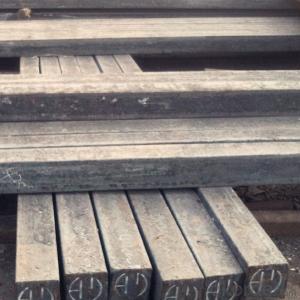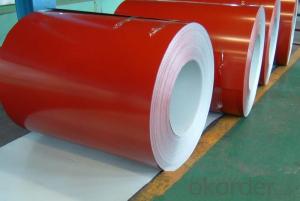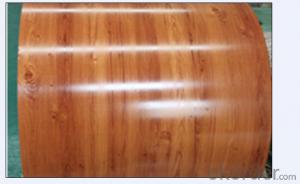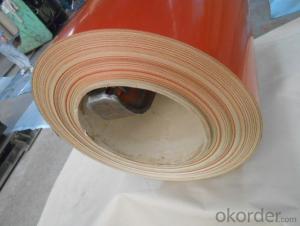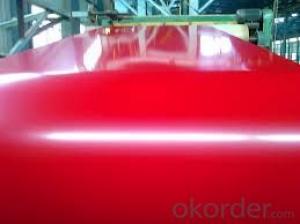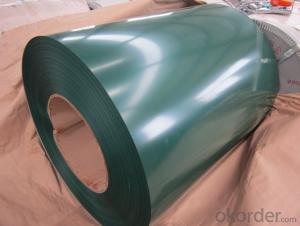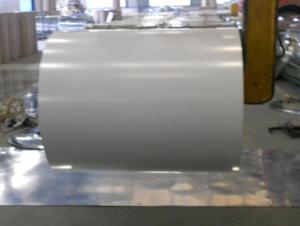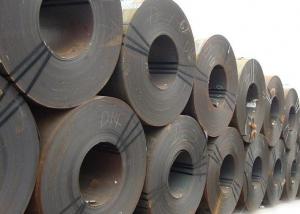PRE-PAINTED GALVANIZED STEEL COIL KAHALARI RED
- Loading Port:
- Tianjin
- Payment Terms:
- TT or LC
- Min Order Qty:
- -
- Supply Capability:
- 5000 m.t./month
OKorder Service Pledge
Quality Product, Order Online Tracking, Timely Delivery
OKorder Financial Service
Credit Rating, Credit Services, Credit Purchasing
You Might Also Like
PRE-PAINTED GALVANIZED STEEL COIL
ZINC COATING:60g/m2 (-/+10g/m2)
STANDARD:JIS G 3312
TOP COATING:5+13 micron;5-7 micron
STEEL GRADE:HARD QUALITY (75-90hrb)
COIL WEIGHT:3-6 ton COIL ID:508mm
SIZE:0.40(tct)*925mm*C 350-355m TOLERANCE: THICKNESS:-/+0.02mm; WIDTH:0/5mm
COLOR:KAHALARI RED
- Q: What are the different grades of steel and their respective applications?
- There are several grades of steel, each with unique properties and applications. Some common grades include carbon steel, which is widely used in construction and manufacturing; stainless steel, which is resistant to corrosion and commonly used in kitchen appliances and medical equipment; tool steel, which is known for its high hardness and used in cutting tools; and alloy steel, which contains different elements to enhance specific properties and is used in automotive and aerospace industries.
- Q: What are the different types of steel sections used in bridges?
- There are several types of steel sections commonly used in bridges, including I-beams, H-beams, box girders, and trusses. These sections are designed to provide strength, stability, and load-bearing capacity to support the weight of the bridge and withstand various forces such as tension, compression, and bending. Each type of section has its own unique shape and structural characteristics, allowing engineers to choose the most appropriate one based on the specific requirements of the bridge design.
- Q: What are the applications of steel in the food processing industry?
- Steel is widely used in the food processing industry due to its various applications. It is used to manufacture equipment such as storage tanks, processing vessels, and conveyors, which are essential for transportation, storage, and processing of food products. Steel is preferred due to its durability, resistance to corrosion, and ease of cleaning, ensuring food safety and hygiene. Additionally, steel is used for constructing food preparation surfaces, cutting tools, and utensils, as it is strong, easy to sanitize, and does not react with food. Overall, steel plays a crucial role in maintaining high-quality standards in the food processing industry.
- Q: What are the uses of steel in the oil and gas industry?
- Steel is widely used in the oil and gas industry due to its exceptional strength, durability, and resistance to corrosion. It is primarily utilized for constructing pipelines, drilling equipment, and storage tanks. Steel pipes are used to transport crude oil, natural gas, and other fluids over long distances, ensuring safe and efficient delivery. Additionally, steel is employed in the fabrication of platforms, rigs, and subsea structures, providing a sturdy foundation for offshore drilling operations. Its versatility and reliability make steel an essential material in the oil and gas industry.
- Q: What are the different types of steel angles and their applications in the construction of bridges?
- There are primarily three types of steel angles used in the construction of bridges: equal angles, unequal angles, and inverted angles. Equal angles have both sides of equal length and are commonly used as structural components in bridge piers and towers. They provide stability and support to the overall structure. Unequal angles have one side longer than the other, and they are often used in bridge trusses and beams. These angles help distribute the load and provide strength to the bridge. Inverted angles, also known as L-shaped angles, are used as stiffeners in various bridge components such as girders, columns, and beams. They help resist bending and provide additional strength to critical areas of the bridge. Overall, the different types of steel angles play a crucial role in the structural integrity and stability of bridges, ensuring their durability and ability to withstand heavy loads and environmental factors.
- Q: How are steel products used in the chemical industry?
- Steel products are widely used in the chemical industry for various applications such as storage tanks, pipes, and equipment due to their high strength, durability, and resistance to corrosion. These steel products help store and transport chemicals safely and efficiently, ensuring the integrity of the substances being handled. Additionally, steel is often used in the construction of chemical plants and refineries, providing a stable and secure infrastructure for chemical processes.
- Q: How are steel products used in the manufacturing of consumer goods?
- Steel products are used in the manufacturing of consumer goods in various ways, such as in the production of appliances like refrigerators, washing machines, and ovens, as well as in the construction of automobiles, bicycles, and furniture. Steel's durability, strength, and versatility make it an ideal material for these applications, providing stability, safety, and longevity to the final products.
- Q: How is steel rebar reinforced in concrete structures?
- Steel rebar is reinforced in concrete structures by placing it strategically within the concrete forms before pouring. The rebar acts as a skeleton, providing tensile strength to the concrete while it cures. It is typically arranged in a grid pattern, ensuring proper distribution of forces and preventing cracks and structural failure.
- Q: What are the different types of steel products used in the manufacturing of baby products?
- There are several types of steel products used in the manufacturing of baby products, including stainless steel, carbon steel, and galvanized steel. Stainless steel is often used for items like baby bottles, food containers, and utensils due to its durability, corrosion resistance, and hygiene properties. Carbon steel is commonly used in the production of cribs, strollers, and highchairs for its strength and cost-effectiveness. Galvanized steel can be found in baby gates, playpens, and other safety equipment, as it offers excellent corrosion resistance and structural stability.
- Q: What are the different types of steel bar grating materials?
- There are several different types of steel bar grating materials, including carbon steel, stainless steel, and aluminum. Carbon steel is the most common and widely used material due to its strength, durability, and cost-effectiveness. Stainless steel is highly resistant to corrosion and is often used in applications where hygiene and cleanliness are important, such as in food processing facilities. Aluminum grating is lightweight and offers good resistance to corrosion, making it suitable for outdoor and marine environments.
Send your message to us
PRE-PAINTED GALVANIZED STEEL COIL KAHALARI RED
- Loading Port:
- Tianjin
- Payment Terms:
- TT or LC
- Min Order Qty:
- -
- Supply Capability:
- 5000 m.t./month
OKorder Service Pledge
Quality Product, Order Online Tracking, Timely Delivery
OKorder Financial Service
Credit Rating, Credit Services, Credit Purchasing
Similar products
Hot products
Hot Searches
Related keywords
